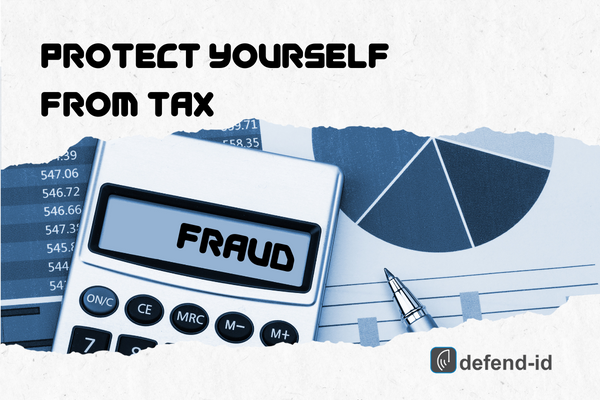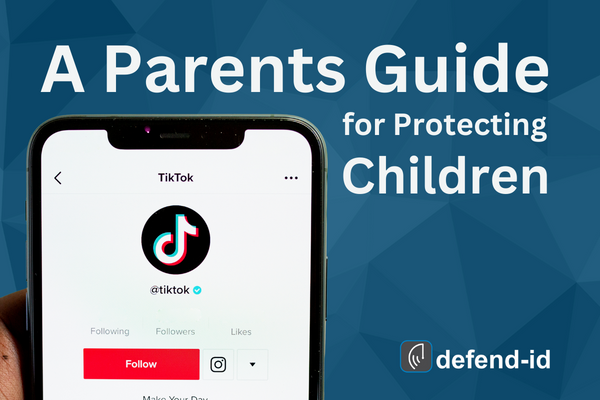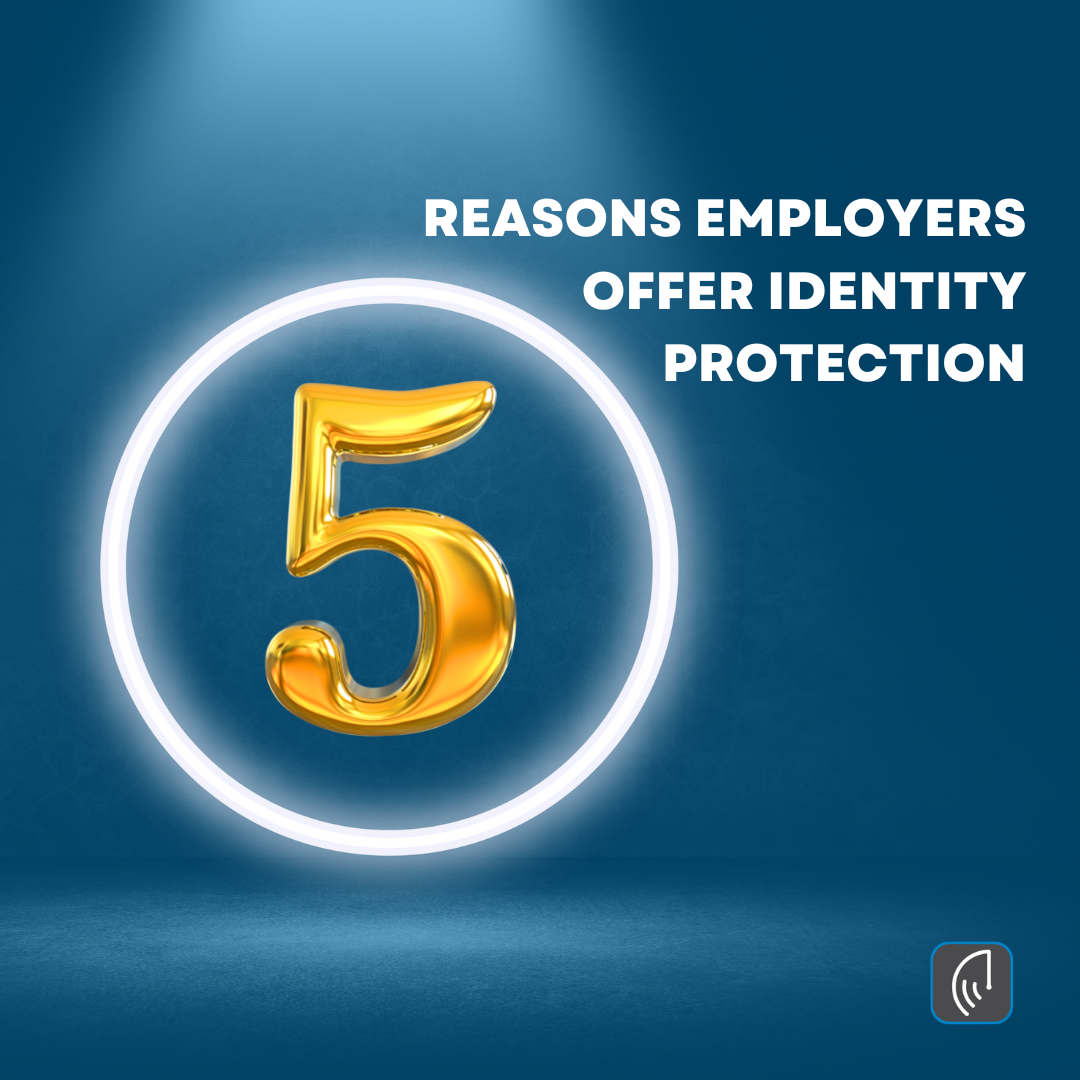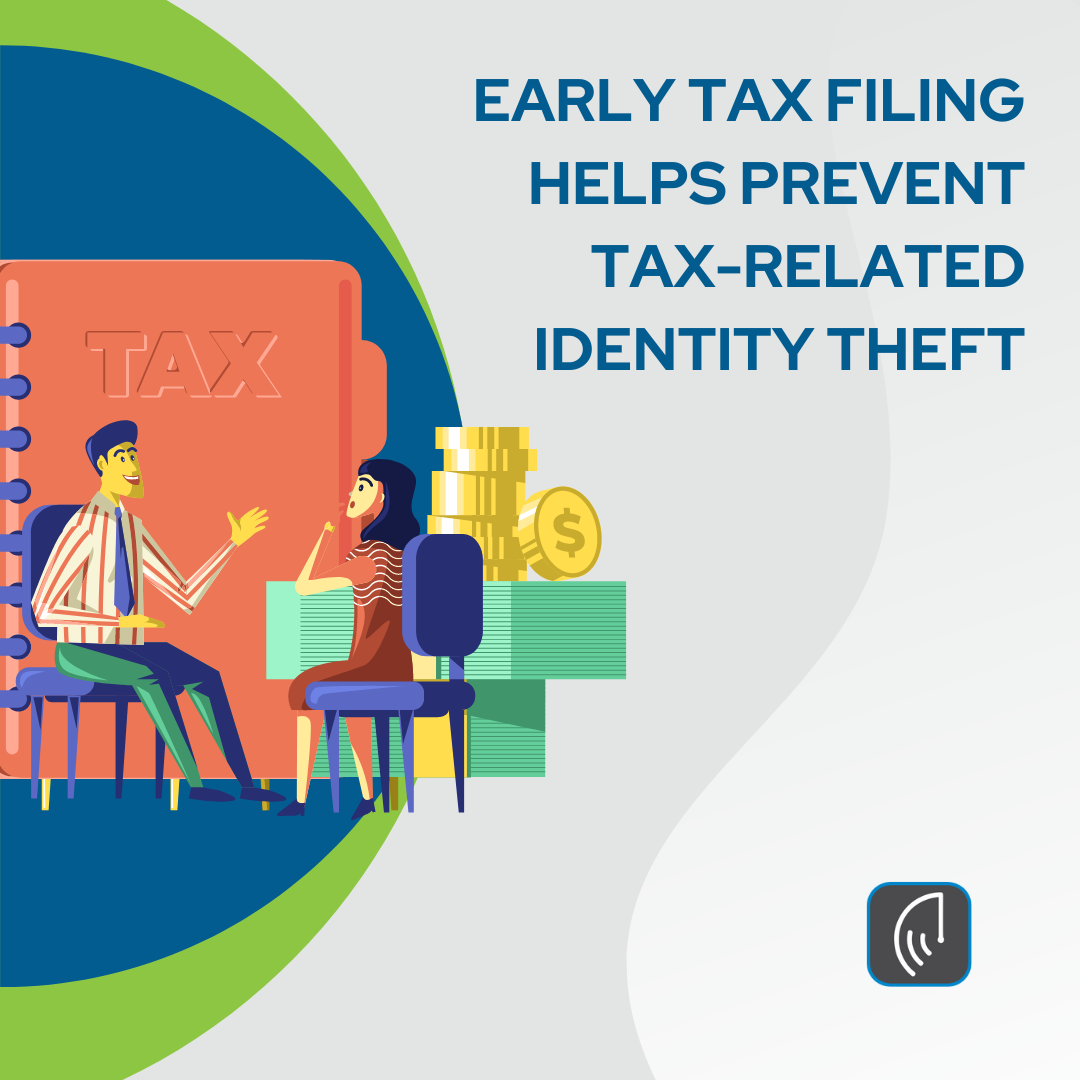
by Brian Thompson | Feb 15, 2023 | General, Identity Theft
Tax identity theft is a type of identity theft that occurs when someone uses your personal information to file a fraudulent tax return and claim a refund. It can have serious consequences, including delays in receiving legitimate refunds, penalties for underpayment, and damage to your credit score. In this article, we’ll explain how tax identity theft occurs, how to spot the warning signs, and what you can do to protect yourself from Tax Fraud
How Tax Identity Theft Occurs
Tax identity theft can occur in a number of ways. For example:
- Phishing scams: Scammers request personal information such as Social Security numbers or bank account details through emails or phone calls that appear to be from the IRS.
- Data breaches: Hackers steal personal information from large companies or government agencies and sell it on the black market for tax identity theft purposes.
- Stolen mail: Criminals steal mail that contains personal information, such as tax documents like W-2 forms or 1099s.
- Social engineering: Scammers use social engineering tactics, like creating fake job postings or fake charity organizations, to trick people into revealing personal information.
Warning Signs of Tax Identity Theft
According to the IRS, some of the warning signs of tax identity theft include:
- The IRS sends a letter stating multiple tax returns were filed or unknown wages were received.
- You can’t file an electronic tax return because someone filed with your Social Security number.
- A tax transcript arrives in the mail, despite not requesting it.
- You get an IRS notice that someone opened an online account in your name.
- You receive an unexpected refund or an incorrect refund amount.
- You receive a tax bill for taxes you didn’t owe.
How to Protect Yourself from Tax Fraud
There are several things you can do to protect yourself from tax identity theft:
- Safeguard personal information: Only provide personal details to trusted individuals or organizations. Beware of unsolicited phone calls or emails requesting such information.
- File taxes early: Early filing reduces the risk of a fraudster filing a return in your name.
- Check credit report regularly: Regularly checking your credit report helps you spot unusual activity like unauthorized new accounts or loans.
With defend-id Coverage, Protect Yourself from Tax Fraud
At defend-id, we understand the importance of protecting your identity and your finances from tax fraud. That’s why we offer fully managed recovery programs to help you recover from the effects of identity theft. Our team of experts will work with you to restore your credit, recover lost funds, and ensure that your identity is fully restored. Learn more about our fully managed recovery programs here: What’s Fully Managed Recovery for Identity Fraud
Tax identity theft is a serious threat that can cause financial hardship and personal stress. Protect yourself by being vigilant with personal information, filing taxes early, and checking your credit report regularly. If you do become a victim, Defend-ID’s fully managed recovery program can help restore your identity. Learn more about the program on our blog. Stay safe and secure!
Don’t let tax identity theft damage your finances and your credit. Take steps to Protect Yourself from Tax Fraud, and consider defend-id’s fully managed recovery programs to give you peace of mind.
Learn more: Protect employees from tax fraud. Peace of Mind with a Place to Turn is a great benefit your employees will appreciate.
Related articles: Early Tax Filing Helps Prevent Tax-Related Identity Theft

by Brian Thompson | Feb 9, 2023 | General, Identity Theft, Uncategorized
As a parent, it’s important to be aware of the potential dangers and harmful content on TikTok, a popular social media platform among children. This guide provides information on TikTok parental controls and the reasons why it may be best to keep children off the app.
TikTok Parental Controls: A Guide for Protecting Children
Concerned parents and authorities need a comprehensive guide on TikTok parental controls to protect children from harmful and inappropriate content on the popular social media platform. This tutorial outlines step-by-step instructions to implement TikTok controls and discusses privacy policies.
- Create TikTok Account: Get started by creating a TikTok account for your child, giving you access to all platform features and settings.
- Enable Digital Wellbeing: Go to “Settings & Privacy” and select “Digital Wellbeing” to enable features such as “Screen Time Management” and “Restricted Mode.” These tools help monitor children’s activity and protect them from harmful content.
- Adjust Privacy Settings: Protect your child’s privacy by visiting “Settings & Privacy” and selecting “Privacy and Safety.” Change who can send direct messages, view videos, and see their profile to the most secure options.
- Report Inappropriate Content: Encourage your child to report any inappropriate or harmful content by using TikTok’s reporting feature.
- Educate Children: Parental controls are important, but so is educating children on online safety and the potential dangers of social media. Teach them to be cautious with information they share, avoid strangers, and report any inappropriate behavior or content.
Regarding privacy policies, TikTok collects information such as location, device information, and usage data. While this data improves user experience, it may raise privacy concerns for parents. To protect children’s privacy, review TikTok’s privacy policy and adjust app privacy settings to limit data sharing.
In conclusion, TikTok parental controls provide a vital way to protect children from harmful and inappropriate content on the app. By creating a TikTok account, enabling digital wellbeing features, adjusting privacy settings, reporting inappropriate content, and educating children, parents can ensure a safe and enjoyable TikTok experience for their kids.
There are several reasons why it may be best to keep children off TikTok. Some of the main concerns include:
- Inappropriate Content: TikTok is known for hosting a vast amount of content that may not be suitable for children. This includes content that is sexually explicit, violent, or promotes harmful ideologies.
- Online Safety: TikTok is a social media platform that can be used by predators to target and exploit children. Children may be at risk of being exposed to inappropriate content, cyberbullying, or may become victims of online grooming.
- Screen Time: TikTok is a highly engaging platform that can quickly consume a lot of a child’s time. Spending too much time on TikTok can lead to decreased physical activity, disrupted sleep patterns, and decreased academic performance.
- Privacy Concerns: TikTok collects and stores personal data from its users, which can raise privacy concerns. Children may not understand the implications of sharing personal information online, and their data could be used for malicious purposes. See TikTok Terms of Service
- Intrusive Policies: TikTok’s privacy policies may be considered intrusive, as the app collects and stores a large amount of personal data from its users. This can raise privacy concerns, particularly for children who are vulnerable.
Considering the potential dangers and harmful content on TikTok, it may be best to keep children off the app. Instead, parents can encourage children to spend their time on other, safer and more appropriate activities.
Protecting children on TikTok requires a combination of parental controls, education, and awareness of the potential dangers. By understanding TikTok’s privacy policies, implementing parental controls, and limiting children’s time on the app, parents can ensure a safe and enjoyable online experience for their kids.
Related Articles:

by Brian Thompson | Jan 19, 2023 | General, Identity Theft
Identity theft is a growing concern for individuals and businesses alike, and as it pertains to accountants, it is important to consider offering identity theft protection services to clients. Not only can this service provide peace of mind for clients, but it can also help protect the accounting firm’s business from potential liability. Is your Accountant offering identity theft protection?
One of the main reasons why an accountant should consider offering identity theft protection services is the transfer and handling of sensitive documents and information. Accountants have access to a wide range of personal and financial client information. Information including Social Security numbers, bank account information, and tax returns. If this information were to fall into the wrong hands, it could be used for identity theft and other fraudulent activities.
Identity theft protection services can help protect clients from this risk by providing monitoring and alerts for suspicious activity, as well as assistance in the event that their identity is stolen. This can lessen potential damage and give your clients a feeling of security.
Liability
In addition to protecting clients, offering identity theft protection services can also help protect the accounting firm from potential liability. Accountants have a professional responsibility to keep clients’ information secure and protect it from unauthorized access. If a client’s identity is stolen and it is determined that the firm did not take adequate measures to protect their information, it may be held liable for any damages.
Compliance
Another important consideration is compliance. Accountants are subject to a wide range of regulations, including HIPAA, SOC 2, and the GDPR, which all require you to protect personal information. Failure to comply with these regulations could result in fines and legal penalties. By providing identity theft protection services, you can make sure that you are complying with the law and protecting the information of your clients.
As we started with, identity theft is a growing concern for both individuals and businesses, and accountants should consider offering identity theft protection services to their clients. Not only can this service provide peace of mind for clients, but it can also help protect the business from potential liability and compliance concerns.

by Brian Thompson | Jan 11, 2023 | General, Identity Theft
Identity theft is a growing concern for both individuals and businesses. Employers are starting to recognize the importance of offering identity theft protection as a benefit to their employees. As a company, it’s imperative to offer a comprehensive employee benefits package that not only attracts new talent but also helps retain the current workforce. Offering identity theft protection as a benefit is a proactive approach to protecting your employees, their financial well-being, and the company’s reputation, productivity, and compliance. In this article, we will look at the 5 reasons employers offer identity theft protection as a benefit to their employees.
Below you will find 5 reasons employers offer id protection to their employees:
- Employee retention: Offering identity theft protection is a valuable benefit to employees, helping with employee retention and recruitment.
- Productivity: Employees who fall victim to identity theft may have to spend significant amounts of time resolving the issue. The time spent often leads to lost productivity for the employee and the company. Providing identity theft protection can help employees avoid or quickly resolve identity theft issues, which can help improve productivity.
- Employee satisfaction: Providing identity theft protection can help employees feel secure and satisfied with their employer. Both of which can lead to better morale and engagement.
- Reputation: Companies that take steps to protect their employees from identity theft can improve their reputation and public image. Employers that care about the well-being of its employees are always held in higher regard.
- Compliance: In some cases, certain industries may be mandated to provide identity theft protection to their employees. Employers should look into those regulations and make sure they are compliant
By offering identity theft protection as a benefit, employers can help protect their employees from the financial and personal harm caused by identity theft, while also reaping the benefits of increased productivity, employee satisfaction, and reputation.
Please keep in mind that each company will have different needs and resources. Not all identity theft protection options may be suitable for your company, therefore, it is important to evaluate all options and determine the one that best fit your organization.
It’s important to remember that identity theft protection is not just a cost, but an investment in the well-being of your employees and your company’s success.
Related Articles:

by Brian Thompson | Jan 4, 2023 | General, Identity Theft
Did you know that individual tax refunds are a popular target for cybercriminals seeking to profit from stolen identities? And that early tax filing helps prevent tax-related identity theft. According to the IRS, tax returns with confirmed cases of identity theft continue to increase year over year. Taking the necessary precautions to protect yourself from tax-related identity theft is important, and filing your taxes early is one of the best ways to help safeguard your identity Discover why the IRS advises taxpayers to file as soon as possible, as well as the most common warning signs of tax-related identity theft.
Tax-Related Identity Theft: What Is It?
Tax-related identity theft occurs when a criminal claims a tax refund using a stolen Social Security number in the victim’s name. The victim may spend months correcting false deductions, incorrectly reported income, and other issues with their tax return.
According to the IRS, tax-related identity theft is one of the most prevalent tax scams. It is particularly common during tax filing season when taxpayers are preparing their returns either on their own or with the help of a tax professional. The victim is often unaware of the fraud until their tax return is rejected because a criminal has already filed a return using the same Social Security number.
Why the IRS Encourages Early Filing
With good reason, the IRS continues to advise taxpayers to submit their returns as soon as possible.
Because the IRS only accepts one tax return per Social Security number, a taxpayer may be able to beat an identity thief to the punch if they file their legitimate tax return before a potential criminal file their fraudulent one. If, on the other hand, a criminal is successful in filing their fraudulent return first, the victim may have to wait months to resolve issues with the return.
As soon as taxpayers have required paperwork, including W-2s, 1099s, and mortgage interest statements, file as soon as possible. Of course, taxpayers should follow the advice of the financial or tax professional they have retained.
Identify the Red Flags
The IRS advises taxpayers to be on the lookout for the following common warning signs:
- An IRS letter inquiring about a suspicious tax return
- Rejected E-Filing due to a previous filing using the same Social Security number.
- The victim received a tax transcript in the mail without asking for one.
- An IRS notice indicating that an online account in the victim’s name has been created, accessed, or disabled, even though the victim took no action.
- An IRS notice stating that the victim has been subject to collection actions for a year in which they failed to file a tax return, additional taxes are due, or that their refund has been offset
- IRS records indicating earnings from an employer unknown to the victim.
What Should You Do If You Believe You Are a Victim of Tax Identity Theft
If you believe you are the victim of tax-related identity theft, the IRS, and the Federal Trade Commission (FTC) advise you to take the following steps:
- Respond to any IRS notice as soon as possible by calling the phone number provided.
- If your e-filed return is rejected because of an existing filing under your Social Security number, file an identity theft affidavit (IRS Form 14039) electronically at IdentityTheft.gov, or as directed by the IRS. The FTC recommends downloading and saving a copy of the report for your own records.
- Even if you must mail your tax return, keep up with your tax filing and payment obligations. Notifying the IRS or the FTC about suspected tax identity theft DOES NOT relieve you of the obligation to pay taxes.
- Consider requesting a copy of the fraudulent return from the IRS with certain details redacted. The information could help you figure out what the thief knows about you and your family.
- Consider placing a fraud alert, an extended fraud alert, or a credit freeze, as recommended by the FTC.
- Close any financial or credit accounts that were opened or altered by getting in touch with your financial institutions.
Individual tax refunds are a popular target for cybercriminals seeking to profit from stolen identities. Filing your taxes early is one of the best ways to help safeguard your identity. These protective measures can help you prevent further identity theft and provide peace of mind. Early Tax Filing Helps Prevent Tax-Related Identity Theft! Additionally, filing taxes early helps ensure that any refunds are received in a timely manner.
Related Article:
2021’s ‘Dirty Dozen’ Tax Scams

by Brian Thompson | Dec 19, 2022 | General, Identity Theft
A favorite holiday tradition is visiting family while on the road. But we must be careful not to reveal our identities to everyone as we go about spreading holiday cheer. Holiday travel fraud is here and there are some things you should do to prepare.
Because of all the holiday commotion, gift givers, shoppers, and travelers can be a treasure trove for identity thieves who know you might be letting your guard down. If you’re anything like me, you struggle to stay within your budget; however, don’t give the bad guys access to every aspect of your life and finances.
Here are a few things to keep in mind before you crack open the eggnog!
- Put your mail on hold; arrange to have all important documents delivered electronically. Additionally, contact the post office to have your mail held.
- Social media: This one is hard! We all want to share our fun with the world, naturally. You also tell the world when you are not at home and how long you will be gone.
- Check your credit cards and bank accounts. Keep track of the charges and amounts on your accounts and credit cards. You can also set up alerts to let you know when certain spending or account limits are met.
- Clean out our wallet: Remove all but the necessary forms of payment from our wallet. It is simpler to remember which cards you have and quicker to limit your exposure if your purse or wallet is stolen.
- Public WiFi: open access WiFi is never a good idea, period. Open WiFi while on vacation is a bad idea because it is exactly the environment the bad guys are looking to exploit. We strongly suggest using a VPN while on any network that is not yours! Read more here: Public WiFi is Putting You at Risk
- Use hotel safes: Place anything that has personal information on it that you don’t need in the room safe. This way, it isn’t on your person and reduces the risk of it being lost.
- Protect your phone: It seems like we should not have to say this, but if you do not have a password or biometrics on your phone, set them up before you go.
We can’t guarantee that doing this will stop identity theft while traveling or at other times. However, we can affirm that these are always excellent habits to adopt. Do what you can to lessen your chances of experiencing identity theft while traveling for the holidays.
Related Articles:





